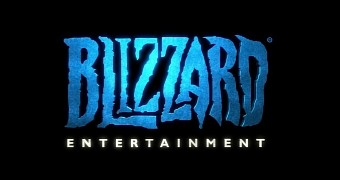The cancelation of Titan, Blizzard's long-awaited multiplayer online role-playing game, will result in massive losses for the studio, but in the end it's for the better, as releasing a sub-par experience would hurt its reputation as well as its financial figures, according to an analyst.
Blizzard has been around for quite some time, and ever since the popular World of Warcraft MMORPG appeared on the market, the studio has focused a lot on this segment of the games industry, working not only on expansions for WoW but also on an all-new intellectual property called Titan, which was kept a secret for many years.
Yesterday, however, Blizzard confirmed that Titan had been canceled and wouldn’t ever see the light of day, despite the studio spending a lot of money and resources on the project.
Titan's development cost a lot, but its cancelation isn't that surprising
As you can imagine, after the massive announcement, plenty of opinions appeared, including a statement from independent analyst Billy Pidgeon, who has talked with GamesIndustry about the potential losses and how Blizzard can recover from them.
"Development costs for Titan may have amounted to tens of millions, perhaps $50 million or more. This is not an unusual event, however. Blizzard has cancelled several games in various stages of development in the past," he explains.
"Costs for unreleased games can be significant, but launching substandard games can harm the reputation of a successful publisher such as Blizzard. Expenses for development can be considered R&D, and benefits can include invaluable training, IP and technology that can be applied to other games."
The online game market is constantly changing
Pidgeon also emphasizes that the market for online games isn't stagnating, meaning that Titan, with its 7-year development period, was certainly the subject of plenty of major changes, depending on the state of the MMORPG segment.
"As far back as 2013, they had already stated Titan was not likely to be a subscription-based MMORPG. This is consistent with a market that is increasingly dominated by multiplayer games that are either free to play or are an expected feature included with triple-A games such as Call of Duty," he adds.
The analyst also exemplifies his statements using two of the year's biggest online-only experiences, in the form of Titanfall and Destiny, which could have launched as multiplayer shooters but instead were released as full-fledged retail experiences without any sort of subscription, supplementing the sales via DLC.
"Titanfall and Destiny sold as standalone games supplemented by paid downloadable add-ons. Blizzard maintains very high standards of quality, so expectations will be steep for new franchises as well as for sequels."
As of yet, it's unclear what Blizzard's future plans are in concern to the online market, although it has a few major projects in alpha or beta stage, like Hearthstone or Heroes of the Storm.

 14 DAY TRIAL //
14 DAY TRIAL //